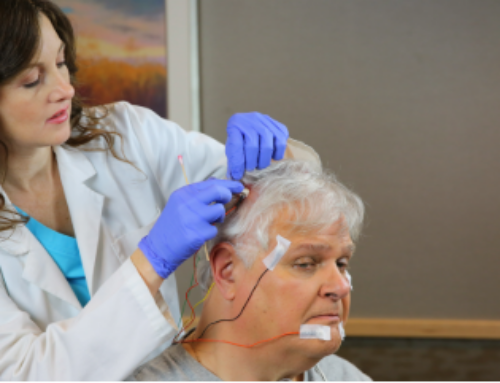Scientists have revealed evidence of a strong connection between sleep and Alzheimer’s disease.
Alzheimer’s disease is the most common cause of dementia. Dementia is a general term for a decline in memory loss and cognitive abilities.
Alzheimer’s affects memory, thinking, and behavioral patterns. It is a degenerative brain disease that typically worsens over time if not treated accordingly. More than six million Americans are living with Alzheimer’s.
Getting quality, deep sleep and the recommended amount of sleep each night may be protective against the development of various types of dementia such as Alzheimer’s disease.
How sleep detoxes the brain
Recent research suggests that during deep sleep, the brain removes toxins associated with Alzheimer’s.
The development of Alzheimer’s has been linked to increased levels of proteins in the brain. Research suggests that the buildup of these proteins contributes to cognitive decline.
A study published in the journal Science revealed that cerebrospinal fluid carries these waste products away from the brain during deep sleep, acting as a guard to cognitive function.
This video shows the waves of fluid that flow into the brain during sleep to “deep clean” these harmful proteins.
Sleep duration may play a role
There’s also mounting research to suggest that getting too little—or even too much—sleep could increase your risk for Alzheimer’s disease
A report published in JAMA Neurology found that people who sleep less than six hours per night had elevated levels of the proteins that are considered markers for dementia such as Alzheimer’s.
Interestingly, the same study also reported that adults who slept more than nine hours per night also showed a decline in cognitive ability. Sleeping less than six hours or more than nine hours was also linked to more symptoms of depression and higher body mass index (BMI).
The AASM recommends that adults get seven or more hours of sleep per night. However, in young adults, 9-10 hours could be needed if there is sleep deprivation.
A lack of sleep may also play a role in Alzheimer’s.
In fact, a 2018 study found that just a single night of sleep deprivation increased the amount of Alzheimer’s-related toxins in the brain.
The relationship between sleep and Alzheimer’s is complex. These studies highlight the importance of deep, quality sleep in lowering the risk of cognitive decline. While there is still more research to be done, these recent findings suggest that prioritizing sleep may support brain health.
Medical review by Rafael J. Sepulveda MD, DABOM, and Reeba Mathew, MD, FCCP
Related:
- Short sleep linked to aging brain
- Sleep and growing older
- Acting out dreams linked to developing dementia
Authored by:
Kate Robards





